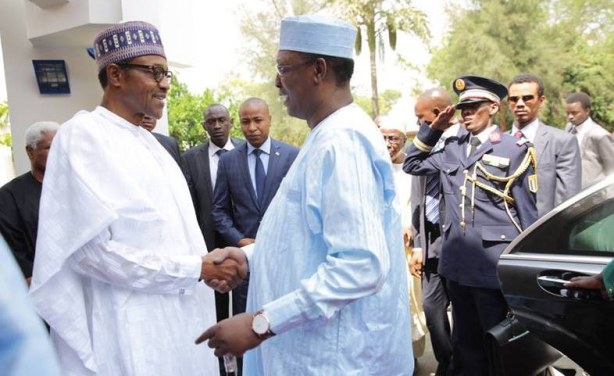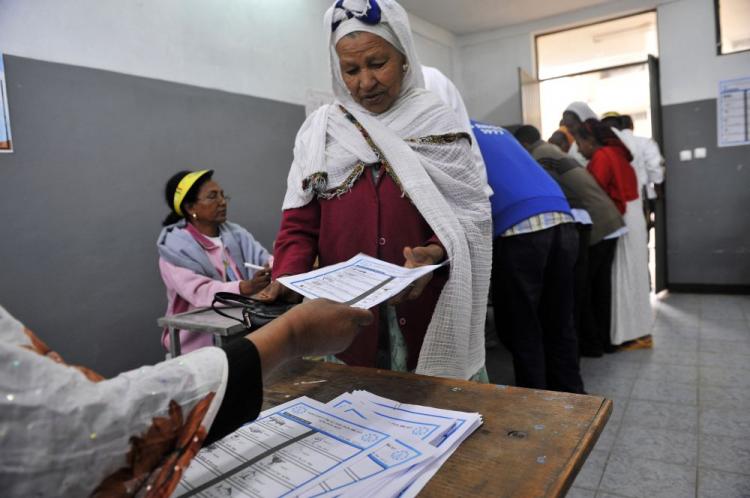By Emmanuel Aziken
The battle for the office of Senate President in the Eight Senate was in the perspective of many classically redefined by the outcome of the March 28 National Assembly elections. Before the elections the prospects of unseating Senator David Mark from the number three position in the land was in the opinion of many far-fetched given Mark’s seemingly cowing of the opposition to his eight-year stay in office. Before his emergence in June 2007, Mark had been the major power broker in the Senate between 2003 and 2007 when he had the control of the G86 senators. The insinuation in some quarters at that time was that he strewed the banana peels on the pathway of Senate Presidents not beholden to him and threw them out of office as he pleased. However, since his emergence, the Senate has been relatively peaceful with no incidence of banana peels to discomfort him. His associates and detractors share the common anecdote that he knows where the banana peels are or that he has packed them away.
Senator Mark’s judicious and apparently transparent allocation of funds may have helped his longevity. However, the national political remapping of the country by the landslide victory of the All Progressives Congress, APC may have now undercut permutations of Mark stretching his record eight-year leadership of the Senate beyond the seventh Senate.
With the APC in the majority with 64 senators and the PDP with 45 senators, the signs are that the APC could easily form the leadership since it is a simple majority to elect a Senate President. But the figures are not that rosy for the APC as it gives opportunity for the PDP to exploit internal divisions within the APC to truncate the plans of the APC leadership. Should Senator Mark successfully lure ten senators from the APC and keeping his 44 other senators, he could then be in position to project whosoever he desires for the leadership. It is an issue that the APC is not ignorant of and hence repeated entreaties by party leaders for a peaceful resolution of the zoning controversy.
The battle in the APC which was initially a direct face-off between Senators Bukola Saraki and George Akume both from the North Central was later eclipsed with the entry of Senator Ahmad Lawan from Yobe State.
Saraki’s Senate swagger
It is a kind of nostalgic feeling in the Senator Bukola Saraki camp. Coming from a family of three senators which produced Nigeria’s iconic Second Republic Senate Leader, the Office of Senate President is perhaps the only bridge remaining for the Saraki dynasty to cross in parliament.
Senator Bukola Saraki, elder brother of former Senator Gbemisola Saraki and son of Senator Olusola Saraki, has come into the Senate leadership contest well prepared. His head start came from the early support he reportedly gave to each All Progressives Congress, APC senatorial candidate ahead of the March 28 Senate election. Besides impressive financial contributions, the Kwara born senator also gave his presence to the candidates especially in his North-Central geopolitical zone.
It is no surprise then that all but few senators from the North-Central have lined up behind him making the zone a Saraki fortress that not even other prospective Senate President aspirants can boast of more than two supporters.
Senator Saraki’s campaign is also pushing the case of ideological balancing within the APC. The argument by supporters of Saraki is that the senator’s ideological platform is the only one yet to find a position in the party’s official hierarchy among the four major tendencies that are in the
APC. They claim that the former Congress for Progressive Change, CPC has the presidency in the person of General Muhammadu Buhari, the former Action Congress of Nigeria, ACN has the vice president in the person of Yemi Osinbajo, and that the All Nigeria Peoples Party, ANPP, has the national chairman in the person of Chief John Odigie-Oyegun.
The new Peoples Democratic Party, nPDP bloc from where Saraki came, his supporters claim, is yet to be settled.
Given his background in the PDP, it is no surprise that Saraki’s bid is seriously being backed by his former colleagues in the PDP who crossed over with him to the APC and also, by those who remained in the PDP.
Given his lockout from the Southwest by senators from the zone who are backing Lawan, he has gravitated towards the South-South and Southeast where the PDP is in firm control.
Saraki is also believed to be working in arrangement with a ranking senator from the Northeast with the prospect of supporting that senator’s ambition to be Deputy Senate President. The former governor from the Northeast was one of those that came out to disown the reported endorsement of Senator Lawan by the Northeast.
Senator Saraki is also cultivating support through serving and former governors in the South-South and Southeast. The outgoing deputy chairman of the Senate Committee on Environment and Ecology, Senator Ben Ayade who is the governor-elect of Cross River State is also believed to be throwing support for him given the fact that Saraki is the outgoing chairman of the committee.
Senator Saraki’s well-known relationship with former Governor James Ibori of Delta State would also be an advantage to help him galvanise the three senators from Delta State.
His main challenges are the alleged opposition from a senior party leader from the Southwest. There are also insinuations that the emergence of Prof. Yemi Osinbajo as vice-president would make it illogical to have another Yoruba man at the number three position. But such assertions are put down by the fact that superiority of numbers would determine the emergence of the next Senate President.



